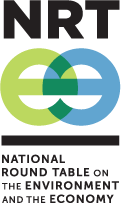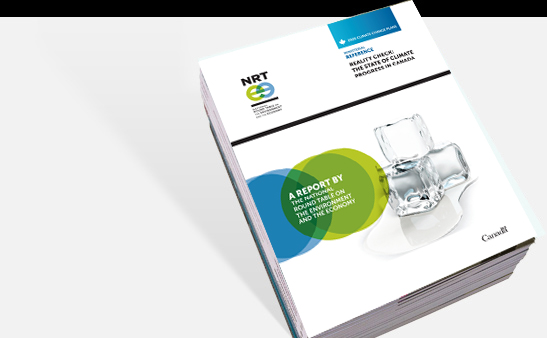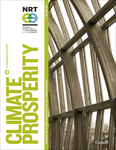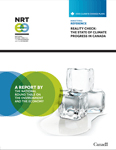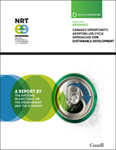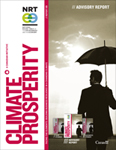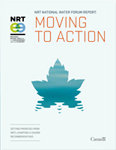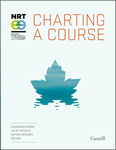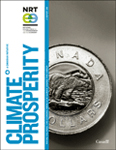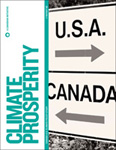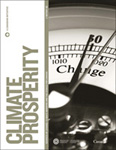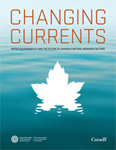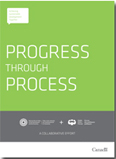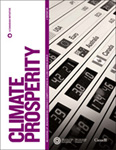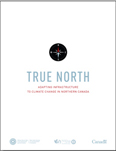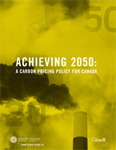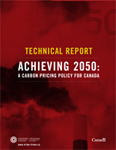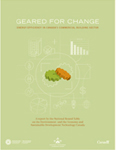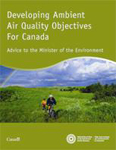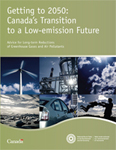Section 3 – Moving to Action: NRT National Water Forum Report
PRIORITY RECOMMENDATIONS AND STARTING TO ACT
This section identifies the priority recommendations within each theme, as determined by participants at the Water Forum. They proposed changes to modify and strengthen some of the NRT’s original recommendations, and these are noted. Two new recommendations were also put forth and identified as priorities.
To move these priorities forward, Forum participants offered solid ideas on actions in the short to medium term aimed at giving the recommendations traction. Initial suggestions were made about organizations or groups that could either take a leadership role or contribute to the implementation of the recommendations and actions for the top priority in each category.
WATER FORECASTING
The recommendation noted as being of highest priority was the following, but with modifications, noted in italics:
PRIORITY #1
Recognizing that accurate water forecasting requires improving how and what we measure and report water-quantity data, governments and industry should work collaboratively to develop appropriate measurement and reporting requirements on a sector-by-sector and basin-to-basin basis.
This recommendation was seen as a necessary first step as it builds the foundation for the other two priority recommendations, noted below. Accurate forecasting determines how and what is measured. A number of short-term actions were suggested to implement this recommendation:
| ACTION | LEADERS AND/OR PARTICIPANTS |
| Identify regional priority action plans for measurement and reporting | Regional/basin/conservation-level authorities |
| Initiate approach for provincial regulatory management for data collection | Provincial governments |
| Identify critical policy questions that we are trying to answer on a regional basis | Provincial governments and stakeholders; may include federal government if boundary waters are involved |
| Identify appropriate mechanisms and institutions to collate data and provide a regional picture | No group identified |
These steps could then allow a pilot study to be conducted within the target area to identify needs and issues, that should be led by regional, watershed or conservation authorities.
The implementation of the recommendation above would then enable the following two priorities to move forward:
PRIORITY #2
Governments should develop new predictive tools, such as water forecasting, to improve their understanding of where and when water demands might increase. The information provided by forecasts will be important to inform water allocations and management strategies in the future.
PRIORITY #3
The federal, provincial, and territorial governments should collaborate in the development and publication of a national water-use forecast and water-use forecasts for major basins, updated on a regular basis — a Water Outlook — the first to be published within two years. This could be led by a national organization such as the Canadian Council of Ministers of the Environment.
The idea that governments begin collaborating to develop water quantity data is critically important. Data collection and knowledge generation needs to be viewed less as something that is reluctantly required and more as an incredibly important input into water management. This will drive questions of what is the best, most effective and efficient information to collect.
WATER DATA AND INFORMATION
One water data and information recommendation was noted as being of highest priority:
PRIORITY #1
In collaboration with partners and stakeholders, governments at all levels should develop protocols for transparent access to water data. Provinces and territories should continue establishing their own water-data portals. The federal government should develop a national web-based water portal, in collaboration with the provinces and territories, that also provides access to provincial and territorial water portals.
It was suggested that while the other NRT water data and information recommendations are important, this one had to be implemented first for the other data-related recommendations to be possible. The development of protocols of water data collection and the availability of accessible water portals, leading to better data and information, would enable the development of more accurate water forecasts. To move this recommendation forward, the following two short-term actions were put forth:
| ACTION | LEADERS AND/OR PARTICIPANTS |
| Set Canada-wide goals to define the actual data needs. | Council of Federation — Water Stewardship Committee |
| Develop a common protocol and language based on international standards. | Statistics Canada, Natural Resources Canada, CCME, NRT |
In the medium term it was suggested that governments develop and implement a regulatory framework to ensure water data reporting, one that addresses confidentiality issues. It was noted that a few innovative water data management and water portals have recently been developed. In moving this recommendation forward, these pilots should be examined to see if they could serve as models for other jurisdictions in the country.
WATER PRICING
Participants proposed a new recommendation that was agreed upon as the first priority in this category:
PRIORITY #1
Estimate the value of water.
Participants agreed that this new recommendation was more comprehensive and articulates the direction in which Canada needs to go to sustainably manage its water resources. As a starting point for implementing this recommendation, two short-term actions were seen as necessary to developing a robust yet manageable framework and methodology for estimating the value of water.
| ACTION | LEADERS AND/OR PARTICIPANTS |
| Identify state-of-the-art concepts and methods for valuation. | CCME, CoF, Council of Canadian Academies |
| Carry out case studies in a coordinated fashion across the country on how to value water. | Provincial governments, conservation and watershed authorities, CWRA |
Participants suggested that two of the NRT’s water pricing recommendations be combined into one. This became the second priority:
PRIORITY #2
Develop the capacity to price water and anticipate impacts.
Three important enabling conditions will be necessary before Canadians can implement these recommendations on water pricing:
- develop a social marketing campaign to convince Canadians of the need for the valuation of water and to explain what this means;
- build capacity — intellectual and organizational — within governments, academia, and sectors; and
- conduct more modelling of water demands and the impacts of pricing, and explore water quality trading.
COLLABORATIVE WATER GOVERNANCE
All four of the NRT’s recommendations related to collaborative water governance were noted as necessary and important. Some participants considered the proposed recommendations in the context of national, provincial/territorial, and regional jurisdiction and initiatives, concluding that the federal government alone would have trouble articulating any kind of national approach to collaborative water governance. To make it workable, the four NRT water governance recommendations were combined, bringing in partners with national scope. This was the most highly ranked priority of the Forum.
PRIORITY #1
A coalition of the Council of the Federation, the Federation of Canadian Municipalities, the Assembly of First Nations, and the resource sectors, with the support of the Government of Canada, should develop a charter that affirms the legitimacy of collaborative water governance. This charter should articulate the guiding principles that coalition members will adopt in developing their own regional, provincial/territorial, or local structures, including roles, responsibilities, accountabilities, mechanisms for enabling participation, and integration with other planning processes and policies.
This new recommendation creates a framework based on principles that allow local needs to be articulated in response to specific problems but giving it national importance. Participants suggested that the Canadian Water Resources Association (CWRA) is well positioned to lead this initiative as it is well aligned with its proposed work on a Canada-wide water strategy and could develop the charter in a period of 12 to 18 months for consideration. Of course all levels of governments would ultimately be required to fully participate and affirm the legitimacy of the charter once drafted.
